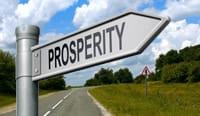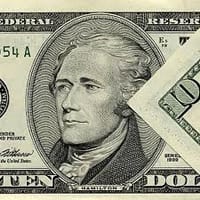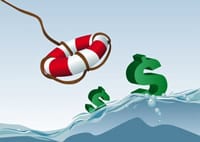
Most people by this point of the year have given up on their goals. How are you doing with yours? Maybe you didn’t even set goals for 2012 because you didn’t want to break them. Even if you didn’t set goals, you probably still have wishes. What are your financial wishes for 2012? Is it to pay down debt, make better spending choices, save more, or improve your credit score? Don’t worry, I’m not psychic. That’s just what most people want.
Wishes and Goals
Wishes rarely come true because they are too vague and fanciful. After the holidays, most of us wish for a lottery win. Goals are usually more realistic than wishes, but many goals fail because they aren’t specific enough. You need something achievable to work towards, and you need the satisfaction of knowing when you’ve achieved it. If your goal is to “pay off debt” does that mean you failed if you take a loan on a new car, or if you paid off some debt, but not all? A better way to word your goal might be “reduce credit card debt by 50% by December 31, 2012.” You were specific about the type of debt, the dollar amount, and the date you plan to celebrate your achievement. That’s a great goal and worthy of a wish.
Goals and Plans
What’s your specific goal? Don’t worry if you don’t know yet. I’ll help you figure it out, then I’ll help you make a plan to achieve it.
There are three steps I want you to take. Step 1: figure out exactly where you are today (the starting point). Step 2: Create your specific goal based on your current reality. Step 3: make your plan to achieve your goals.
This is not meant to be overwhelming. Let’s follow the financial story of Jason (a completely made up person):
Jason completed steps 1 and 2. He added up all his credit card debt and set a specific goal to cut that debt in half by 2013.
Jason’s Current Reality: $12,000 in credit card debt
Jason’s Goal for December 31, 2012: $6,000 in credit card debt
In order to complete Step 3 (make a plan), Jason needs to look for ways to pay $6,000 in debt during the year. To be more specific, he needs to pay an average of $500 per month. That’s assuming he is not adding new charges to his credit cards. He’ll have to pay more each month if he is. (He may need to pay more to cover his interest charges as well.)
Plans and Achievements
You might be wondering how Jason will find an extra $500 each month to pay down his credit cards. The simple answer? Earn more, spend less, or a combination of both. Jason has already cut his spending down, so he will need to earn more money.
You are probably thinking “Easier said than done!” It’s not always easy to achieve your dreams, but it’s usually worth trying.
A business coach once gave me an exercise that I found really helpful. She told me to write down 20 things I could do to increase my income. This is what we’re going to ask Jason to do.
Here are some ideas to get his creativity flowing:
1. Work 3 more hours a week for overtime
2. Find a part time job
3. Sell unwanted items
4. Turn his hobby into cash
5. Ask for a raise
This is a brainstorming session, so Jason shouldn’t worry that his ideas aren’t realistic. The idea is to write down all the possibilities without judging them. Once he’s done writing, then he can determine which ideas to use over the next year in order to get that $500. He has a plan to earn extra money, and he has a list to follow that will help him achieve his goal.
If, like Jason, you’re trying to make your financial wishes come true this year, remember to reassess your progress during the year. Don’t wait until December 15 only to find out that your plan isn’t working. Check in with yourself monthly and make adjustments as needed. Join me for my upcoming teleclass in February to learn more. Visit JillRussoFoster.com/YourMoney


 What can you do with $10? If your first thought is “I can buy something!” you’re not alone. But, $10 won’t get you very far, and then you will be left with zero.
What can you do with $10? If your first thought is “I can buy something!” you’re not alone. But, $10 won’t get you very far, and then you will be left with zero.
 You see this happen all the time. You are in a situation with other people and someone mentions his nice vacation plans. What is the first thing that pops into your head? Are you genuinely happy for him or do you automatically think about how much he’s spending (that includes jealous thoughts of the “he must be making more money than me” kind). You know what I mean.
You see this happen all the time. You are in a situation with other people and someone mentions his nice vacation plans. What is the first thing that pops into your head? Are you genuinely happy for him or do you automatically think about how much he’s spending (that includes jealous thoughts of the “he must be making more money than me” kind). You know what I mean.
